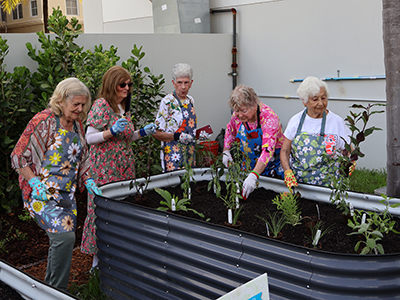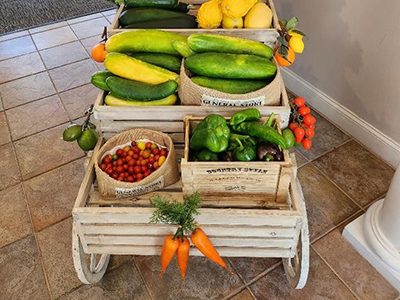All Americans, regardless of income, should have access to a nutritious diet which includes more fresh vegetables and fruits and fewer processed foods. Currently, across the U.S., too many Americans do not have access or cannot afford healthy food choices. We cannot allow that to stand. Food insecurity —whether quantity or quality— due to a lack of resources or access, is a significant and hidden issue in our nation with far-reaching consequences. The lack of proper nutrition contributes to a host of corresponding societal issues including chronic health conditions that place a burden on our health system and impacts our economic productivity.
About three-fourths of Americans have an unbalanced diet low in vegetables, fruits, dairy, and healthy oils.
Low-income communities suffer from higher rates of obesity and chronic disease due to limited access to fresh foods, a higher concentration of fast food restaurants in their neighborhoods and environments not conducive to physical activity
The disruption of food intake due to lack of resources is prevalent throughout the country. Recent statistics show that 17.4 million U.S. households experience food insecurity every year.
Studies have shown that neighborhood conditions affect physical access to food. Particularly those living in urban areas, rural communities, and low-income neighborhoods may have limited access to full-service grocery stores.
Americans, who lack affordable and nutritious food options, must resort to convenience stores and small independent stores, which often charge higher food prices, sell lower quality foods, and a limited variety of fresh foods.
To dive deeper into this issue, Moshe interviewed Kim Rose, a dietitian and diabetes expert, about the need to eat healthy, and how to make healthy food taste great.
A healthier America is key to creating a stronger nation. In every community, every neighborhood, whether urban or rural, we must identify and create both government sponsored and robust private-partnership programs, to offer Americans access to reasonably priced fresh and healthy food options.


As mentioned, this was the impetus behind Moshe and his wife Yaffa creating Neighborhood Farms USA® , a national 501(c)(3) non-profit organization that promotes the benefits of establishing and maintaining community gardens that provide access to fresh, nutrient-rich produce and educates through practical community-building programs, newsletters, and on-line workshops. The goal of Neighborhood Farms USA® is to generate greater awareness for healthy nutrition among families and their children and encourage communities to work together to cultivate land and harvest crops.
Current Neighborhood Farms USA ® garden locations include the Palo Verde Apartment Complex, Cresthaven Assisted Living, and Pleasant City Elementary School in West Palm Beach, Florida; Seaside Hallandale Beach in Hallandale Beach, Florida; and Branson Creek Commons in Fayetteville, North Carolina, with many more garden locations to come.
By providing an opportunity to grow and nurture healthy, organic foods free of pesticides and/or herbicides, the program is laying a foundation for a stronger community and fostering a greater sense of community throughout the country. The goal is to build healthy communities, one neighborhood at a time.The Popacks have also established The YMP Family Foundation which has undertaken several initiatives to promote healthy nutrition and access to fresh food options. Among those initiatives, Moshe and Yaffa provided the initial funding to open the Miami Kosher Supermarket in North Miami, which offers families access to reasonably priced, healthy food.


